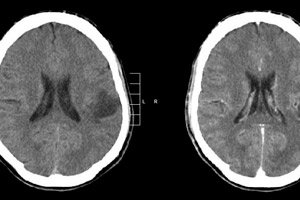
All iLive content is medically reviewed or fact checked to ensure as much factual accuracy as possible.
We have strict sourcing guidelines and only link to reputable media sites, academic research institutions and, whenever possible, medically peer reviewed studies. Note that the numbers in parentheses ([1], [2], etc.) are clickable links to these studies.
If you feel that any of our content is inaccurate, out-of-date, or otherwise questionable, please select it and press Ctrl + Enter.
FDA approves new therapy for glioma patients for first time in decades
Last reviewed: 02.07.2025
 ">
">Vorasidenib has been approved by the US Food and Drug Administration (FDA) for patients with grade 2 gliomas with IDH1 or IDH2 mutations.
Based on data from the INDIGO clinical trial, a global phase III, double-blind, randomized clinical trial, vorasidenib more than doubled progression-free survival and delayed the need for treatment with radiation and chemotherapy in patients with IDH-mutant grade 2 glioma following tumor resection surgery. INDIGO was the first phase III clinical trial of a targeted therapy for IDH-mutant glioma.
"The INDIGO study shows that IDH inhibitors may work in low-grade gliomas with an IDH mutation," says Patrick Wen, MD, director of the Center for Neuro-Oncology at Dana-Farber Cancer Institute and one of the study's three chairpersons. "The last drug that was approved for low-grade gliomas was approved in 1999, so this would be the first new drug in a long time."
Grade 2 gliomas are incurable brain tumors. IDH mutations are found in the vast majority of low-grade gliomas.
A key benefit of vorasidenib therapy is that it may delay the need for radiation and chemotherapy. Current treatment involves surgery followed by radiation and chemotherapy. Radiation and chemotherapy are effective treatments, but after many years of treatment, patients begin to experience signs of cognitive dysfunction typically seen in much older people.
"These patients are often young, in their 30s or 40s. But 10 to 20 years later, even if they're doing well in terms of their tumor, they often show signs of dementia after radiation and chemotherapy," Wen says. "If this drug can delay the start of those treatments, it can delay cognitive dysfunction in patients and preserve their quality of life."
The INDIGO study included 331 patients with IDH-mutant grade 2 gliomas who underwent surgery to remove the tumor. Patients enrolled in the study did not require immediate radiation or chemotherapy and were in a follow-up period. During this period, they were randomized to receive vorasidenib or placebo.
Patients taking vorasidenib had a median progression-free survival of 27.7 months, compared with 11.1 months for patients taking placebo. The time to next treatment for patients taking placebo was 17.8 months.
In patients treated with vorasidenib, the median was not determined at the time of the latest analysis, as only 11.3% of these patients had crossed over to the next treatment so far. The drug also had a manageable safety profile.
"The study found no difference in quality of life compared with placebo," Wen says. "Tolerability is important because this is a drug we expect people to take for many years."
The approval opens up several new options for patients. For example, Van has an ongoing study looking at vorasidenib in combination with immunotherapy, and studies combining vorasidenib with standard radiation and chemotherapy are planned.
